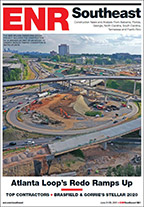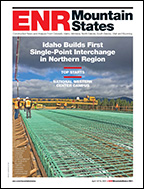Lafarge-Holcim Merger Imperiled as Major Shareholders Reject Deal
A $44-billion merger between French-based Lafarge and Swiss-based Holcim to create the world's largest cement manufacturer received a shock on March 29 as Holcim's second-largest shareholder objected to the terms of the deal.
This setback is only the latest in a plan to create a construction-materials titan that would have operations in 90 countries and the capacity to produce 427 million tonnes of cement, roughly 15% of global demand.
Filaret Galchev, a Russian businessman who owns a 10.8% stake in Holcim, views the deal as "unsatisfactory," according to reports in the Swiss newspaper Sonntagszeitung. Galchev is the second major shareholder to express concerns over the deal recently, as the Swiss investment firm Harris Associates, which owns 6.4% of Holcim, voiced objections on March 27.
The merger between the two cement giants was announced in April 2014, but recent shifts in both companies' performance has threatened to derail the terms of the deal. Holcim unexpectedly outperformed Lafarge in the last quarter, prompting questions about what was touted as a "merger of equals."
Most of the difference in earnings was due to the companies' diverse global holdings. Unlike Holcim, Lafarge is heavily invested in the Middle East and has seen softening demand as oil prices decline. But a deal appeared to have been reached in late March, when the two companies announced that, instead of a 1:1 stock swap, they would trade 10:9 in Holcim's favor. Also, Lafarge CEO Bruno Lafont would no longer serve as CEO of the merged firm, with a new head executive to be voted on later.
Galchev reportedly objects to the new stock-swap ratio, saying it still undervalues Holcim's business. Holcim's investors are set to vote on whether to approve the merger at a shareholders' meeting on May 8. The two companies are reportedly planning to close on the merger deal in July.
Antitrust issues are another obstacle for the deal, but more progress has been made on that front: The European Union approved the merger in December 2014 on the condition that both companies sell off some assets in specific markets. Specifically, Lafarge would have to divest itself of its businesses in Germany, Romania and the U.K., while Holcim would have to give up some of its operations in France, Hungary, Slovakia, Spain and the Czech Republic.
In Ireland, in order to satisfy local antitrust concerns, Lafarge and Holcim have agreed to sell a combined $6.8 billion of their assets in the country to Dublin-based building-materials firm CRH.
Meanwhile, in India, the Competition Commission of India in February said it would approve the deal if Lafarge divested itself of 3 million tonnes of its cement manufacturing capacity in eastern India.



